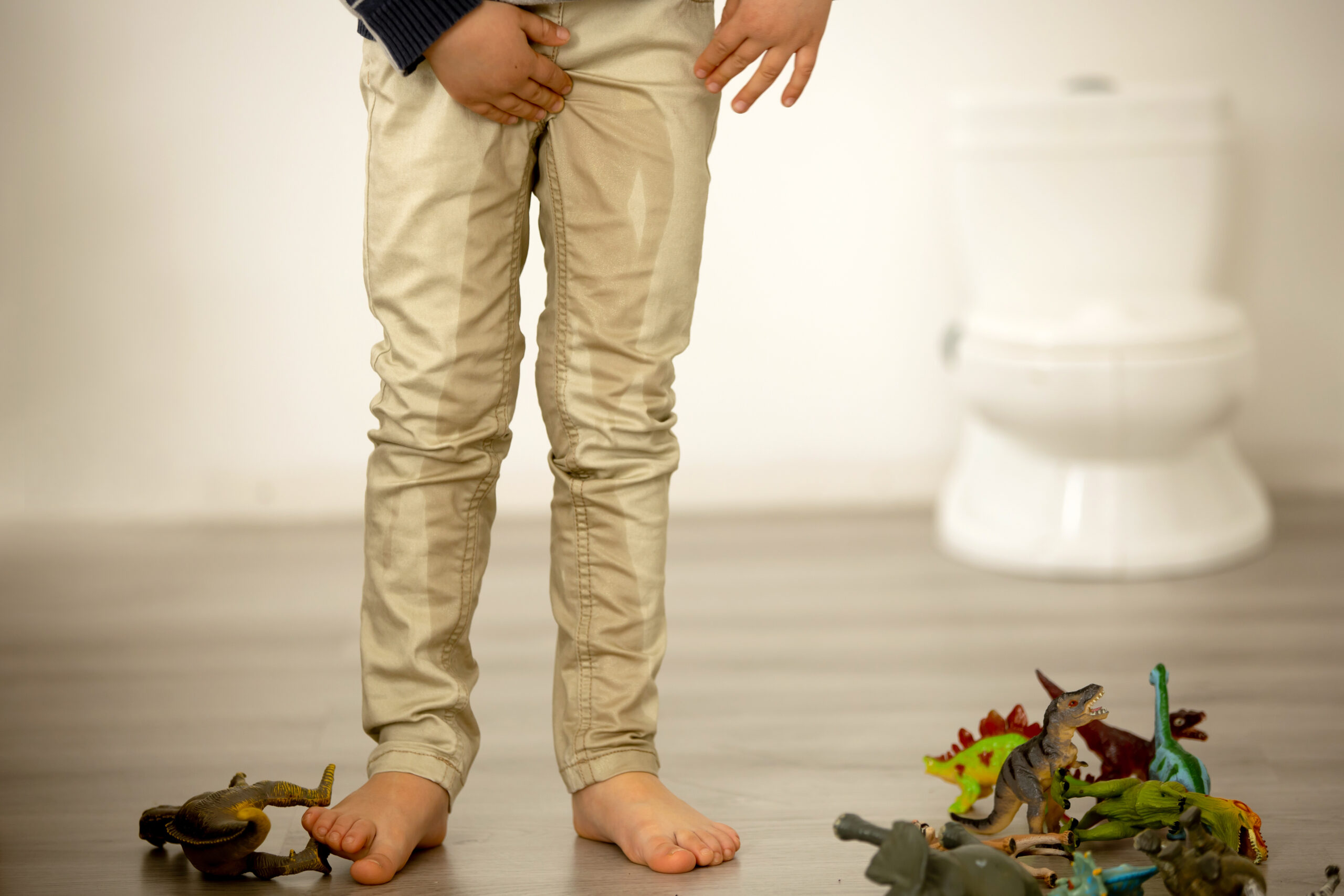
10 Feb Voiding Postponement in Children: Why Delaying Bathroom Breaks Can Cause Issues
As a pelvic floor physio working with children, one common issue I encounter is voiding postponement. Many toddlers and children delay going to the bathroom, often because they’re too engrossed in play or distracted by other activities. While this may seem like a harmless habit, postponing toilet visits can lead to several problems affecting both bladder and bowel health.
What Is Voiding Postponement?
Voiding postponement happens when a child consistently holds in their pee, delaying a bathroom trip despite feeling the urge to go. This habit can be intentional or simply because the child is preoccupied with something more exciting. While it’s not unusual for kids to occasionally delay going to the toilet, frequent postponement can cause short- and long-term bladder and bowel dysfunction.
Why Does Voiding Postponement Happen?
- Busy minds, busy hands: Kids are often so engaged in activities that they ignore the signals from their bladder or bowel. It could be playing with friends, watching TV, or being out and about, but the reluctance to interrupt the fun is a significant factor.
- Fear of missing out (FOMO): Kids might worry they’ll miss out on something fun if they take a break for the toilet.
- Avoiding discomfort: Some children may avoid the toilet because of past discomfort, such as constipation or an unpleasant bathroom experience.
The Impact on Bladder Health
Holding in urine for too long can stretch the bladder and weaken its muscle control. Over time, this can lead to:
- Increased risk of urinary tract infections (UTIs): When children hold urine, it gives bacteria more time to multiply in the bladder, increasing the chances of infection.
- Bladder overactivity or underactivity: A bladder used to postponing can either become overactive (leading to frequent urination and urgency) or underactive (causing a reduced sensation to void, making accidents more likely).
- Daytime wetting: When the bladder is regularly stretched beyond capacity, it can result in accidents during the day, known as incontinence. This can be distressing for both the child and the parents.
The Link Between Voiding Postponement and Constipation
Children who delay urinating often delay bowel movements too. Constipation can make it harder for kids to recognise when they need to pee. This is a result of a full bowel pressing on the bladder. This leads to a vicious cycle of holding both urine and stool, potentially causing:
- Painful bowel movements: The longer stool sits in the colon, the harder and more painful it becomes to pass.
- Encopresis: Severe constipation can lead to soiling or leakage as softer stool pushes around the hardened stool in the bowel.
Signs that a child may be postponing a void can include:
Crossing legs or squatting: Common behaviours where children cross their legs tightly or squat down to “hold it in.”
Fidgeting or dancing: Wiggling, bouncing, or dancing is often a sign that they are avoiding going to the bathroom.
Holding the genital area: Some kids will place their hands over their private parts to stop the urge to pee.
Reluctance to stop activities: If your child avoids taking a bathroom break during play, meals, or screen time, they may be postponing a void.
Sudden trips to the bathroom: Waiting until the last possible moment can result in a hurried, urgent trip to the toilet.
Daytime accidents: If the bladder becomes too full from holding, it can lead to unexpected leaks or full-blown accidents.
Complaints of tummy pain: Holding both urine and stool can cause abdominal discomfort, especially if constipation is involved.
Going a long time without urinating: If your child is going several hours between bathroom breaks, they may be postponing urination.
These signs are good indicators that it’s time to encourage regular bathroom visits to avoid bladder.
How to Help Children Break the Habit
Addressing voiding postponement is crucial to restoring healthy bladder and bowel habits. Here’s how you can help:
Encourage regular bathroom trips: Teach children to listen to their body’s signals. Encourage bathroom breaks every 2-3 hours, even if they don’t feel the immediate need.
Create a bathroom routine: Set a consistent schedule for bathroom trips, especially after meals or snacks. This helps kids become more attuned to their natural cues.
Use positive reinforcement: Reward your child for taking bathroom breaks when they need to. Sticker charts or verbal praise can work wonders for toddlers.
Explain the importance of listening to their body: Teach kids that holding in pee or poop can cause tummy aches or accidents. Using child-friendly language like “your body needs to let the pee out”. This can help them understand why timely bathroom trips are essential.
Address any fears or discomfort: If your child avoids the bathroom because of a past painful experience, such as constipation, address the root cause. Ensure they feel safe and comfortable using the toilet.
Hydration and diet: Ensure your child drinks enough water and consumes fibre-rich foods. This allows them to maintain regular bowel movements, which reduces constipation and encourages regular bathroom habits.
When to Seek Help
If your child frequently postpones voiding and experiences wetting accidents or constipation despite your efforts, it may be time to seek professional help. A pelvic floor physio can provide targeted exercises, bladder training, and bowel management strategies to help restore healthy habits.
To make an appointment with our friendly team, contact the clinic on (03) 8001 2044 or make an appointment online.
